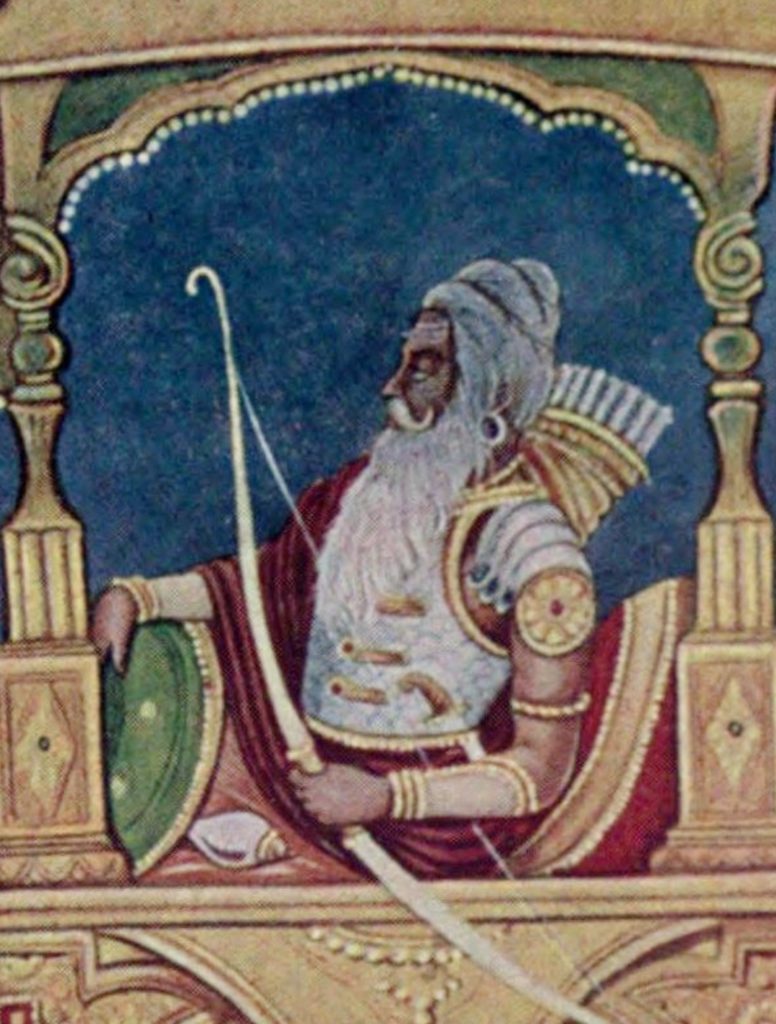The day of the departure arrived.
Vidura, too, had sensed that there was something strange about that trip organized by the nephews, and that Pandu’s children could be in danger.
Having thus investigated the background of the organization of the trip, he had learned of the criminal plot, but he had preferred not to mess it up as it would have been perfectly useless; Duryodhana would surely have waited for another opportunity to eliminate the Pandavas. So, during the farewell, speaking a dialect that only a few knew, sent a secret message of warning to Yudhisthira, who understood and smiled gratefully. Accompanied by Kunti, the Pandavas left.
Having been warned by Vidura, it was no long before they noticed how the house had been built, so they decided not to trust anyone and to always be on the alert. During the day and night there was always one of them standing on guard, which made it impossible for Purochana to set the house on fire. But that situation could not last indefinitely.
“We can’t go on like this forever,” Yudhisthira mused aloud one day, “we have to do something. We have to hoose between openly confronting our cousins or waiting for a better time.”
Bhima was of the opinion that they did not need to hide because with his physical strength they could attack and destroy the wicked, but in reality it was not that easy.
It was true that they would be able to defeat their cousins in a duel, but they were not alone. They had people like Bhishma, Drona, Kripa, Karna, Asvatthama and many other allies on their side who would join them in case of conflict. Certainly, almost all those people were more sentimentally linked to the five brothers than to the sons of Dhritarastra, but in case of conflict they could not help them militarily, as they were debtors to the court in which they had lived comfortably and received all sorts of honors for so many years. In case of war, they would have to fight against the Pandavas and this would become an impediment to the possibility of achieving victory. In fact, everyone appreciated them, but no one could really help them.
The situation was more complicated than it seemed, and they were undecided about what to do.
The right idea came from good old Uncle Vidura. Appointed in secret by the latter, a trusted miner arrived in Varanavata, where he was warmly welcomed by the Pandavas.
“Mahatma Vidura has sent me to you,” he said, “and wants to know how you are.”
“We are fine, but as you can see, we are threatened by a grave danger. This house can get burned down in a few minutes, and we all run the risk of being burned alive. We live in a state of constant alert. And then, what to do to definitively resolve the threat that Duryodhana represent for us?”
“Vidura has explained the situation to me,” replied the miner, “and he has sent me to tell you not to worry. He advises you to hide for a while, so that you can prepare yourself in the event of a war. Set the house on fire yourself, so that everyone thinks you are dead while you are fleeing into the forests.”
The Pandavas accepted the advice with enthusiasm.
After a few days of hard work, the experienced digger managed to build a tunnel that led into a dense forest in the outskirts of the city. Hard times would begin, but at least in some respects things would improve. With that move they could prepare for the future.
On a moonless night in which the attendants, without the knowledge of the Pandavas, had given hospitality to a woman with five children, they set fire to the house where at the time Purochana was also sleeping. As the flames rose very high and uncontrollable, the Pandavas and their mother fled along the tunnel and in a few minutes they found themselves outdoors, in the forest, safe.
The plan was fully achieved, and no one suspected anything.
Everyone in Hastinapura shed bitter tears for the death of their dear princes. Even Vidura and Bhishma, while knowing the truth, were forced to cry and despair so as not to arouse suspicion. Dhritarastra, the king who was blind in body and spirit, having understood that it had not been a misfortune, on the one hand was sincerely sorry, but on the other he was happy because in that way Duryodhana could now inherit the power and regain the lost serenity because of his unbridled envy.
This is a section of the book “Maha-Bharata, English Edition, Vol. 1”.
To buy the complete book, click above
Post view 936 times




Leave a Reply